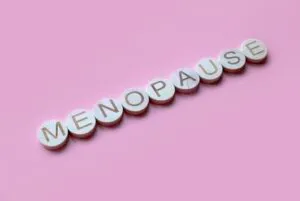 If you’ve been fighting a runny nose, sore throat and general discomfort for the last few days, you may be tempted to pass it off as just a cold. While the common cold is aptly named, it’s not the only reason you might be suffering. Early spring offers a perfect storm of conditions that make colds, allergies and even flu a possibility. How can you tell the difference between these similar medical problems? Here are a few of the biggest tells when it comes to deciphering your symptoms.
If you’ve been fighting a runny nose, sore throat and general discomfort for the last few days, you may be tempted to pass it off as just a cold. While the common cold is aptly named, it’s not the only reason you might be suffering. Early spring offers a perfect storm of conditions that make colds, allergies and even flu a possibility. How can you tell the difference between these similar medical problems? Here are a few of the biggest tells when it comes to deciphering your symptoms.
Seasonal Allergies
During spring, millions of people worldwide suffer from allergic rhinitis, more commonly referred to as hay fever. Pollen, dust, animal dander and other allergens are more abundant in spring, causing plenty of problems for those with allergies. Common symptoms include:
- Itchy, watery eyes
- Runny or stuffy nose
- Sneezing
Hay fever can also lead to sore throats and cough, but these aren’t typical symptoms. If you have allergic asthma, then you may also experience chest discomfort. Headaches are uncommon with seasonal allergies, and you will never get a fever solely due to hay fever. Over-the-counter antihistamines offer relief to seasonal allergy sufferers. You can also try natural remedies, such as a neti pot or herbal supplements, to alleviate persistent symptoms.
The Common Cold
The common cold can linger for weeks, especially since there’s no cure and no guaranteed remedy for treating it. During spring, you might think that allergies are to blame for your sudden congestion and sinus headache, but a cold is the more likely culprit. Colds manifest in different ways. Most people experience:
- A stuffy or runny nose and sneezing
- A sore throat and cough
- Mild to moderate chest discomfort
Colds rarely include fevers or headaches, and you won’t feel as miserable with a cold as you will with flu. OTC medicines might alleviate symptoms, but rest, fluids and natural remedies are just as effective – if not more so – for getting you back on your feet.
Influenza
One common complaint of influenza is the feeling of getting hit by a truck. As with a cold, there’s no cure for flu, but there are prescription and OTC medications that can ease symptoms and help you heal faster. If you get flu, you will usually also get:
- A fever
- Full body aches, including a headache
- Extreme fatigue and weakness
- A cough and chest discomfort
You’re less likely to experience sneezing, a runny or stuffy nose, or a sore throat with the flu unless you also develop a cold afterwards. The best way to prevent flu is to get the flu vaccine each year, preferably by the beginning of October when flu season starts. Flu epidemics run from about October to May each year, so get the shot early to reduce your risk.
Allergies aren’t contagious, but colds and flu are. Practice good hygiene, stay away from people with symptoms and maintain a healthy diet to avoid cold- and flu-related complications. Most people recover from these conditions with time, but you might experience more extreme symptoms. If in doubt, check with your doctor to rule out anything more serious.





